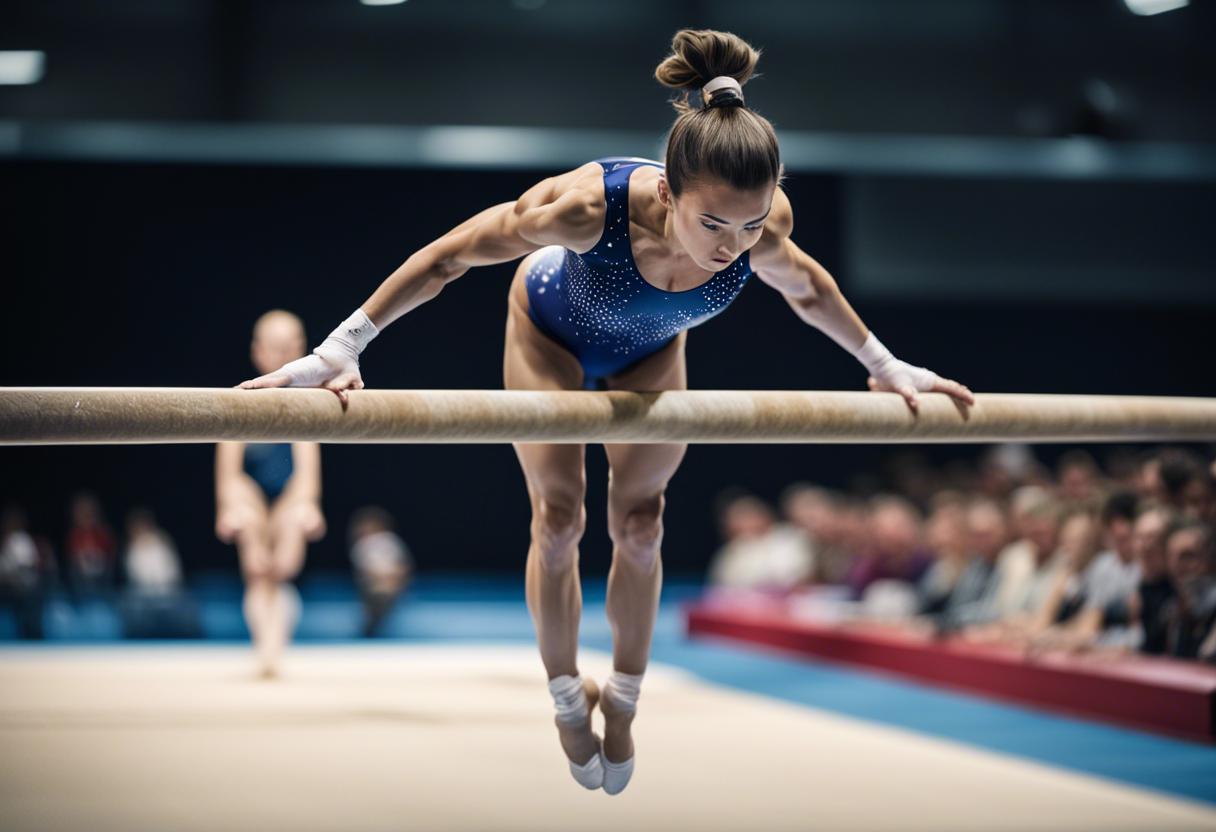In 1972, during the Munich Olympic Games, the US men’s basketball team secured a temporary one-point advantage against the Soviet Union in the final match with only three seconds left. Despite a tumultuous chain of events leading to three repeated last-second plays, the Soviet Union came out victorious by a singular point. For over five decades, the American men’s team have staunchly rejected their silver medals, which remain untouched in Lausanne, Switzerland as the International Olympic Committee (IOC) refuses to reassess the contentious match result.
Meanwhile, the IOC has urged American gymnast, Jordan Chiles, to return her bronze medal due to another timing dispute – a discrepancy of four seconds. Under gymnastics regulations, an inquiry must be submitted within a minute of the display of the score. The US pursued an inquiry about Chiles’s score, alleging an irrefutable error in a segment of her floor routine by the judges. Although the inquiry was validated and Chiles awarded the bronze medal, an appeal was lodged with the Court of Arbitration for Sport (CAS) by Romania’s gymnastics association. They claimed that the American inquiry came in 64 seconds after Chiles’s score was displayed, a claim that CAS sided with. Consequently, the IOC is now prompting Chiles to hand back what is deemed as an undeserved bronze medal.
Interestingly, in its CAS appeal, the Romanian federation also attempted to challenge a 0.1-point deduction given to Sabrina Maneca-Voinea. However, the timing for this appeal was considered inappropriately late, measured by a calendar rather than a stopwatch, leading to its speedy dismissal by CAS.
In further twist, the Romanian gymnastic officials did not seek Chiles’s bronze medal return but rather requested duplicate bronze medals be awarded to Maneca-Voinea and Ana Barbosu, who the IOC has now identified as the rightful bronze medallist.
This brings to mind a similar awarding of duplicate medals due to undecipherable judging disputes. This precedent dates back to 2002 when the IOC granted duplicate gold medals to Canadian figure skating duo, Jamie Sale and David Pelletier, amid a controversy involving alleged Russian mafia intervention.
The case of Jim Thorpe, a prominent name brought up frequently when discussing all-time great athletes, bears relevance to our current situation. Thorpe was divested of his gold medals in the 1912 Olympic decathlon and pentathlon after officials discovered he earned about $30 per month from minor-league baseball, a breach of the Games’ rules on amateurism. Despite the 60-day deadline for medal revocation appeals being well over by roughly four months, his golds were taken from him. About a century later, Thorpe was finally acknowledged as the rightful champion of those events.
There are arguments against Chiles retaining the bronze, stating that rules are rules, and that the USA was tardy in launching its inquiry by merely four seconds. USA Gymnastics, however, counters this, alleging the inquiry was lodged within a minute of the score being announced, specifically 47 seconds in. The association also claimed to have had no access to video footage ahead of the tribunal’s ruling, hence it could not present it as part of its argument.
Should the Court of Arbitration for Sport (Cas), the International Olympic Committee (IOC) and the International Gymnastics Federation find an issue with this newfound evidence, they would find themselves in a tight spot. They must demand Chiles’ medal is returned despite judges agreeing that she indeed delivered the third-highest scoring floor routine. This drawn-out case continues to cause distress to two innocent athletes.
The governing bodies will be forced to let Chiles retain her medal if the fresh evidence is accepted. This would lead to another blow for Barbosu. Additionally, should they not opt to award multiple bronze medals, it falls on the IOC to explain why this situation is different from the 2002 incident. This prolonged scenario is causing a great deal of suffering for athletes who have not broken any rules.

